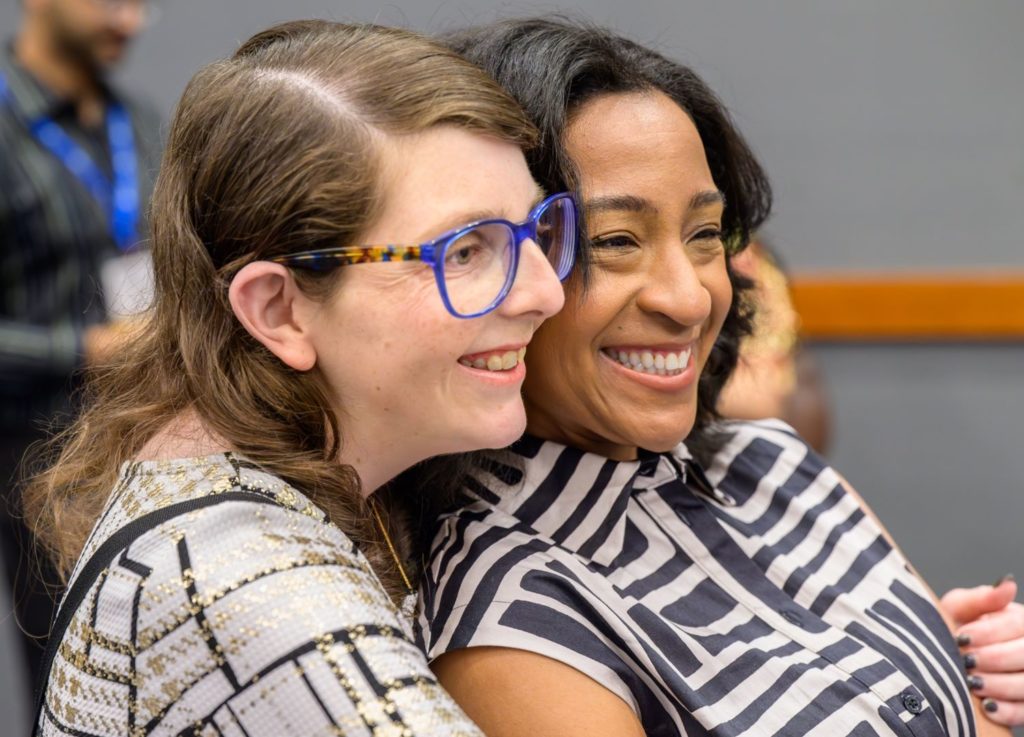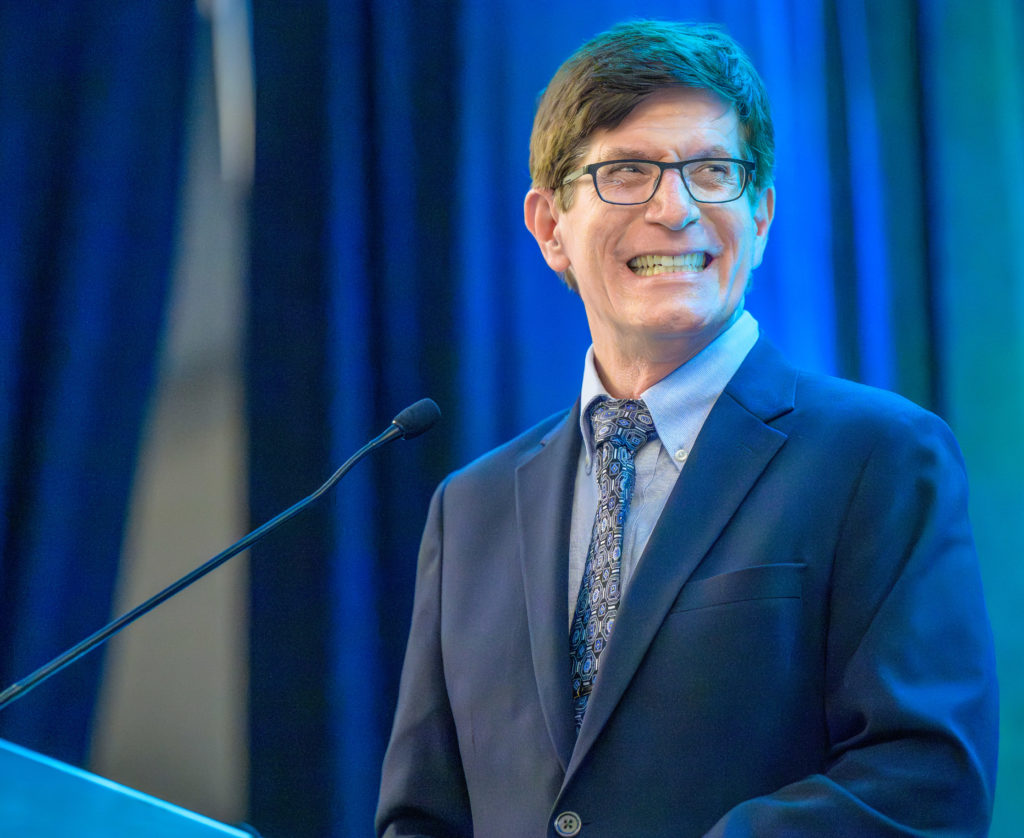
Why cancer?
When the Fanconi Anemia Research Fund (FARF) was founded in 1989, Fanconi anemia (FA) was thought to be a childhood blood disease that led to leukemia. Thanks to years of donor-funded research, we now know that faulty DNA repair is what causes FA and that individuals with the disease have an extremely high risk of developing cancer at a young age.
“In my humble opinion, this disease should have been called Fanconi Cancer.”
– Lynn Frohnmayer, FARF co-founder
Research into gene discovery and bone marrow transplants led to pivotal advancements in treating one of the major issues in FA: bone marrow failure. Thanks in large part to that research, kids with FA now live longer and are reaching adulthood. Advanced age for these individuals has revealed more FA-related issues, however, with one major problem at the forefront: cancer.
Young adults – and even teenagers – with FA may develop aggressive cancers typically seen in 60 and 70-year-olds in the general population. Head and neck cancer and anogenital cancers are the most diagnosed solid tumors and cancer is the now the main cause of death in adulthood for people with FA. Depending on the type of cancer, the incidence to FA cancers is 500- up to 3,000-fold higher than in the general population.
“The cornerstone treatment for FA patients with cancer is surgery,” explains Premal Patel, MD, PhD, FARF Scientific Advisory Board Chair. “However, outcomes are poor if the diagnosis is at an advanced stage. Patients with FA also have significant toxicity issues from chemotherapies used to treat cancer in the general population.”
With most children with FA reaching adulthood, it is even more urgent to find safer, better treatments as fast as possible.
A major investment in cancer research
FARF has invested heavily in research on FA solid tumors since founded in 1989. To date, we have invested more than $9 million dollars to support over 40 research projects focused on FA cancer. These projects focused on early detection and screening, genomic sequencing of FA tumors, drug screening and testing studies, creation of FA cancer preclinical models such as cell lines and animal models, and treatment studies focused on nanoparticle delivery of drugs and radiation therapy. Results from these studies revealed how FA cancer develops and identified promising avenues for prevention and therapeutic strategies.
Grant programs offered by FARF since 1989 provided an opportunity for individual investigators to solicit their proposals. These grants have been instrumental in initiating the fight against FA cancers.
Now, FARF’s focus is to expand on this model and bring FA cancer research to the next level to increase our impact and save lives.
FARF has now shifted its focus to funding collaborative cancer research teams with interdisciplinary expertise to expedite resource sharing and cross-pollination of ideas. These multi-institution grants include funding for the Stand Up to Cancer Research Team and the Joel Walker Ideas Lab Research Team in 2021.
“FARF is now taking collaborative initiatives a step further by creating the infrastructure and grant programs needed to support a larger integrated global network of FA researchers and clinicians who will focus their effort on FA cancer research,” explains Isis Sroka, PhD, FARF Scientific Director. “This new approach led to the development of the global Fanconi Anemia Cancer Consortium (FACC).”
Introducing the Fanconi Anemia Cancer Consortium
A first of its kind clinical care path to preventing, detecting, and treating FA cancer
The Fanconi Anemia Cancer Consortium (FACC) is a collaborative partnership between the FA community and a network of clinicians and physician scientists who have expertise in the diagnosis and management of FA cancers and FA cancer research. The FACC aims to streamline cancer care decision-making processes for patients with FA through evidence-based research.
FACC programs and research projects that patients can choose to participate in will include:
- early detection cancer screening
- accurate diagnosis of pre-malignant and malignant tumors
- tumor profiling
- virtual tumor board review of clinical care plans
- cancer care
- access to psychosocial support programs specific for adults with FA who face a cancer diagnosis.
Patients and their families will also have the opportunity to participate actively as patient advocates in FACC programs to support research and accelerate approvals for potential therapies.
The FACC is a global consortium with primary sites at the National Institutes of Health (the clinical coordinating center for the FACC), the University of Düsseldorf, The Rockefeller University, and British Columbia Cancer Research Institute. The current and future FACC sites have been chosen based on pre-existing partnerships and records of collaborative success, diverse expertise in relevant clinical and research-based specialties, and excellence in clinical and translational research involving FA patients.
Because FA is so rare, no single center has been able to acquire sufficient patient numbers to adequately assess the natural history of FA cancers to improve prevention and treatment strategies; therefore, in the next few years, the FACC will expand to include FA Centers of Excellence where sizable numbers of FA patients are treated in North America.
Dr. Stella Davies, director of the FA program at Cincinnati Children’s Medical Center, comments on the value of the consortium: “The key to curing cancer is to study the disease and test treatments in an organized plan. To do that, we all need to get together and work as a team. This consortium brings all the members of the team together for the first time.”
We know research takes time, and we also know that people with FA need care now. The mission of the FACC is to drive scientific research on FA cancers and enable all people with FA to have access to accurate cancer diagnosis and therapy. Working together is the way forward.
The Fanconi Anemia Cancer Consortium is made possible thanks to donors of the Fanconi Anemia Research Fund and our partners at Fanconi Canada. Thank you, Fanconi Canada, for pledging your support for a portion of this important initiative.




